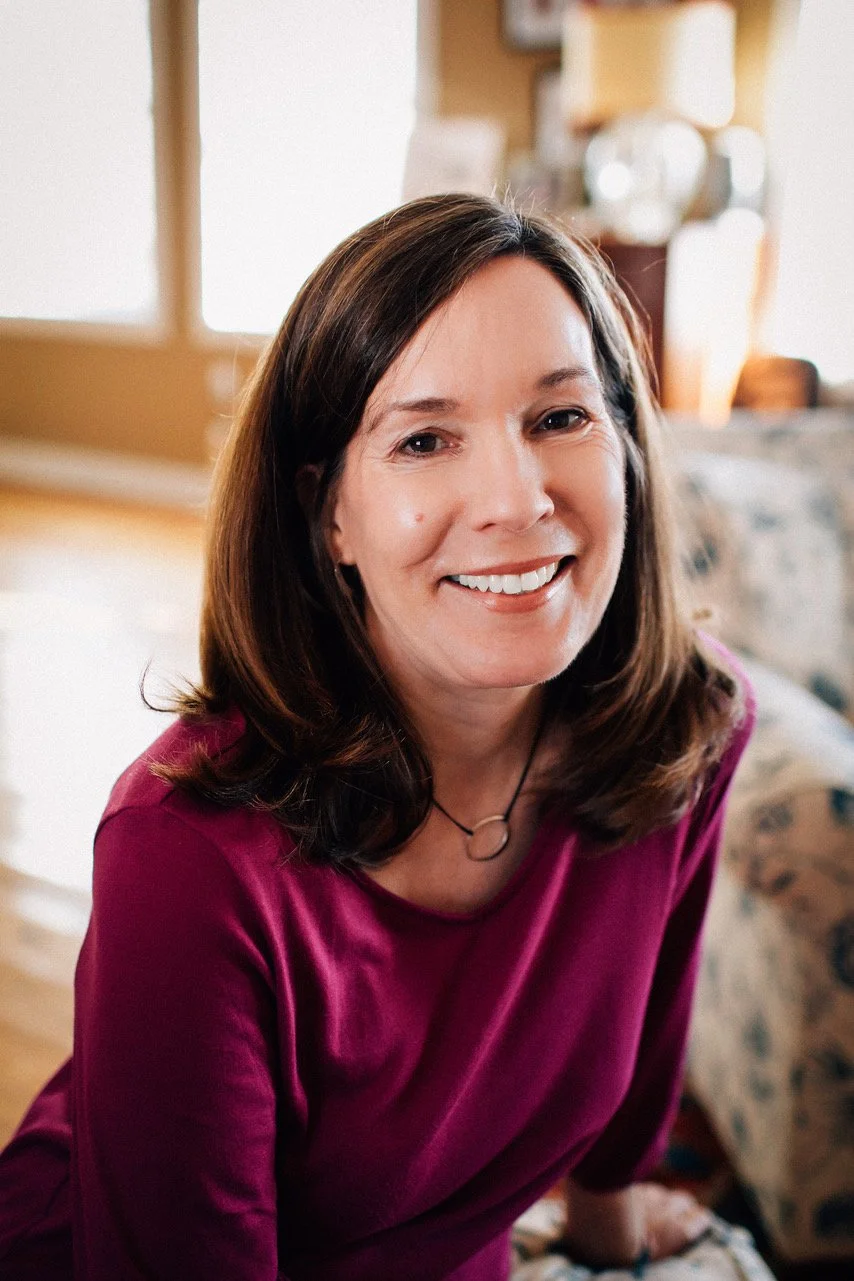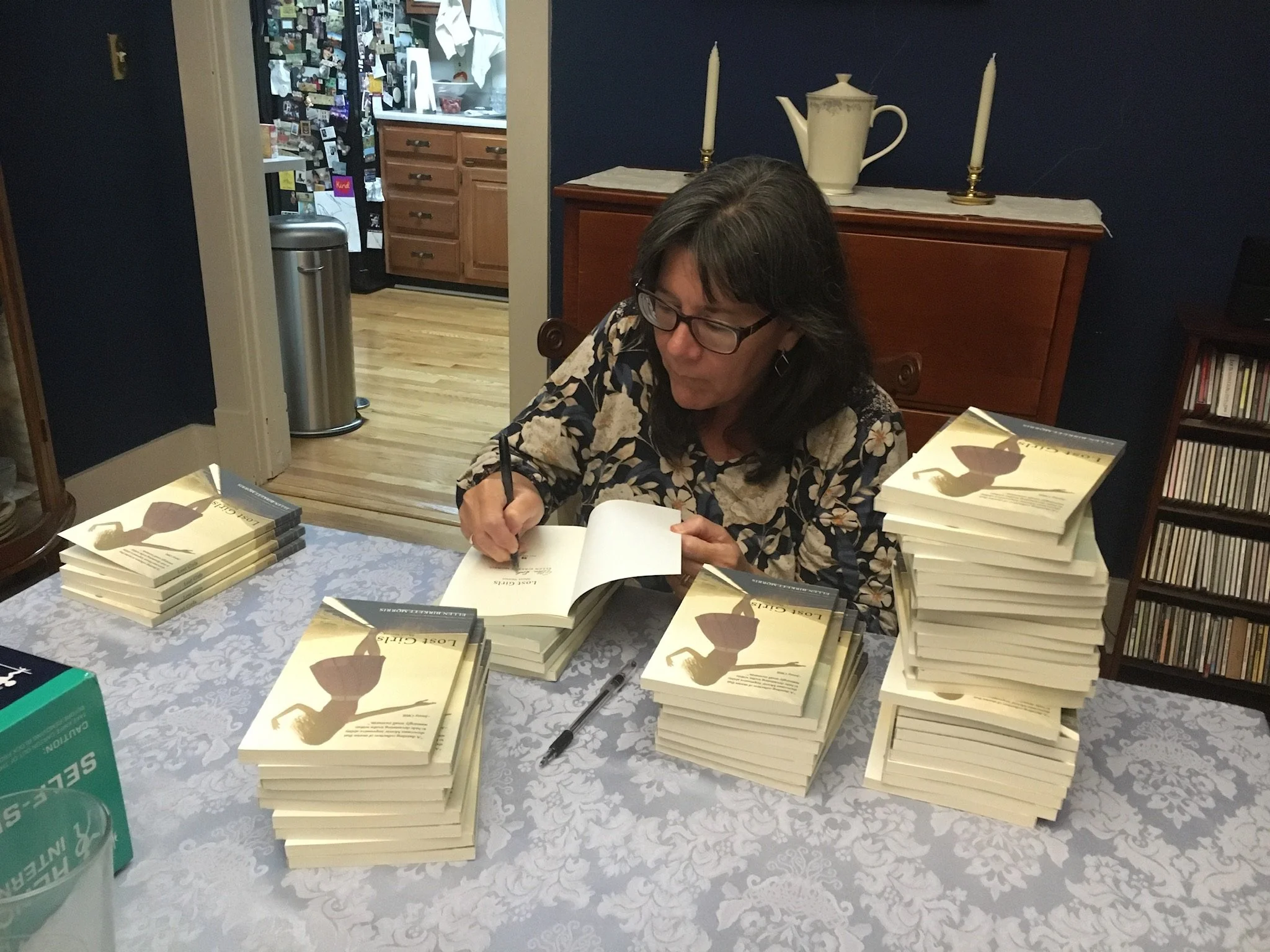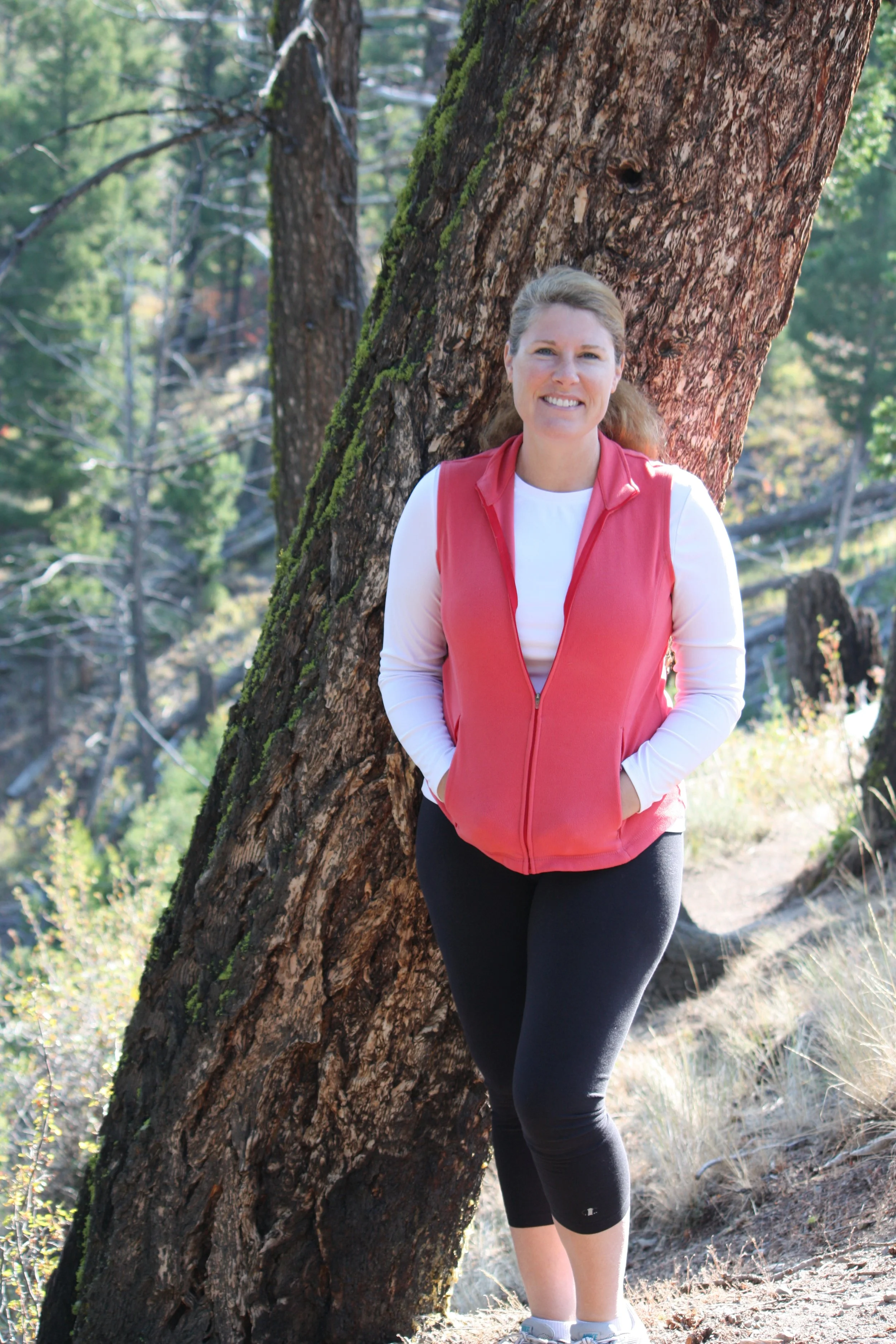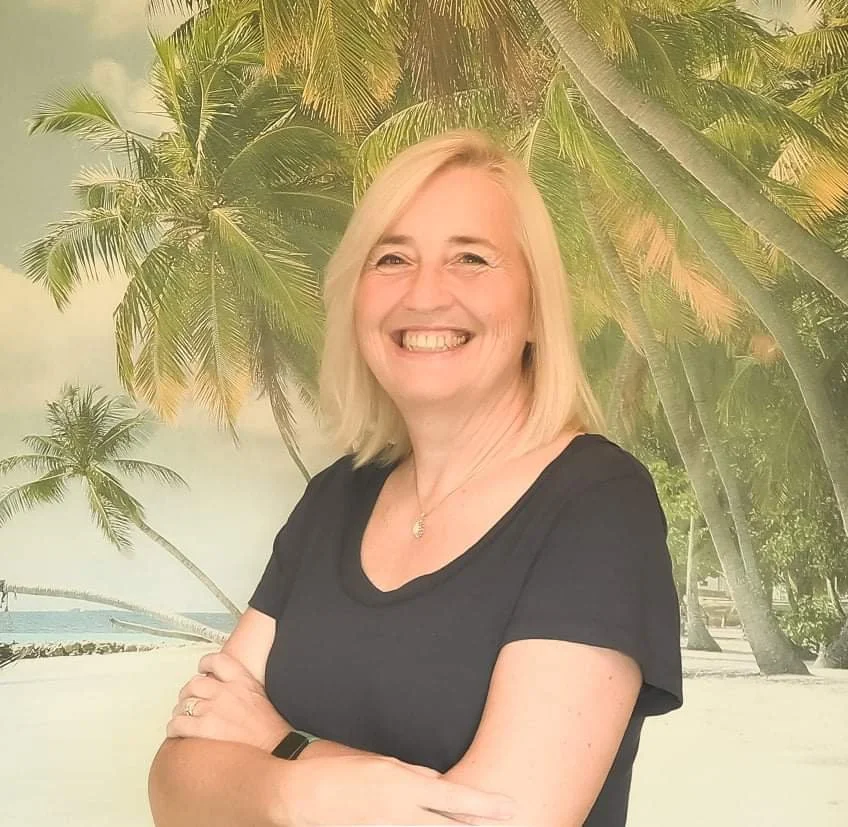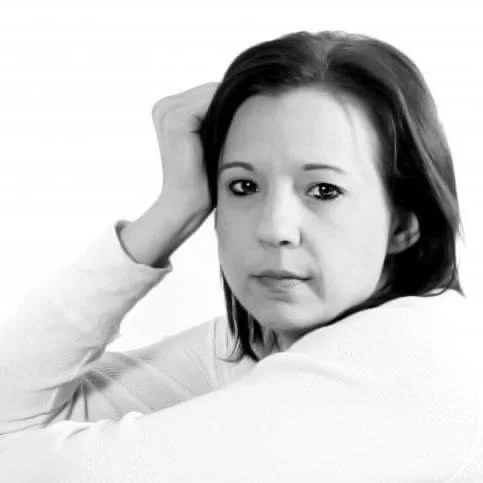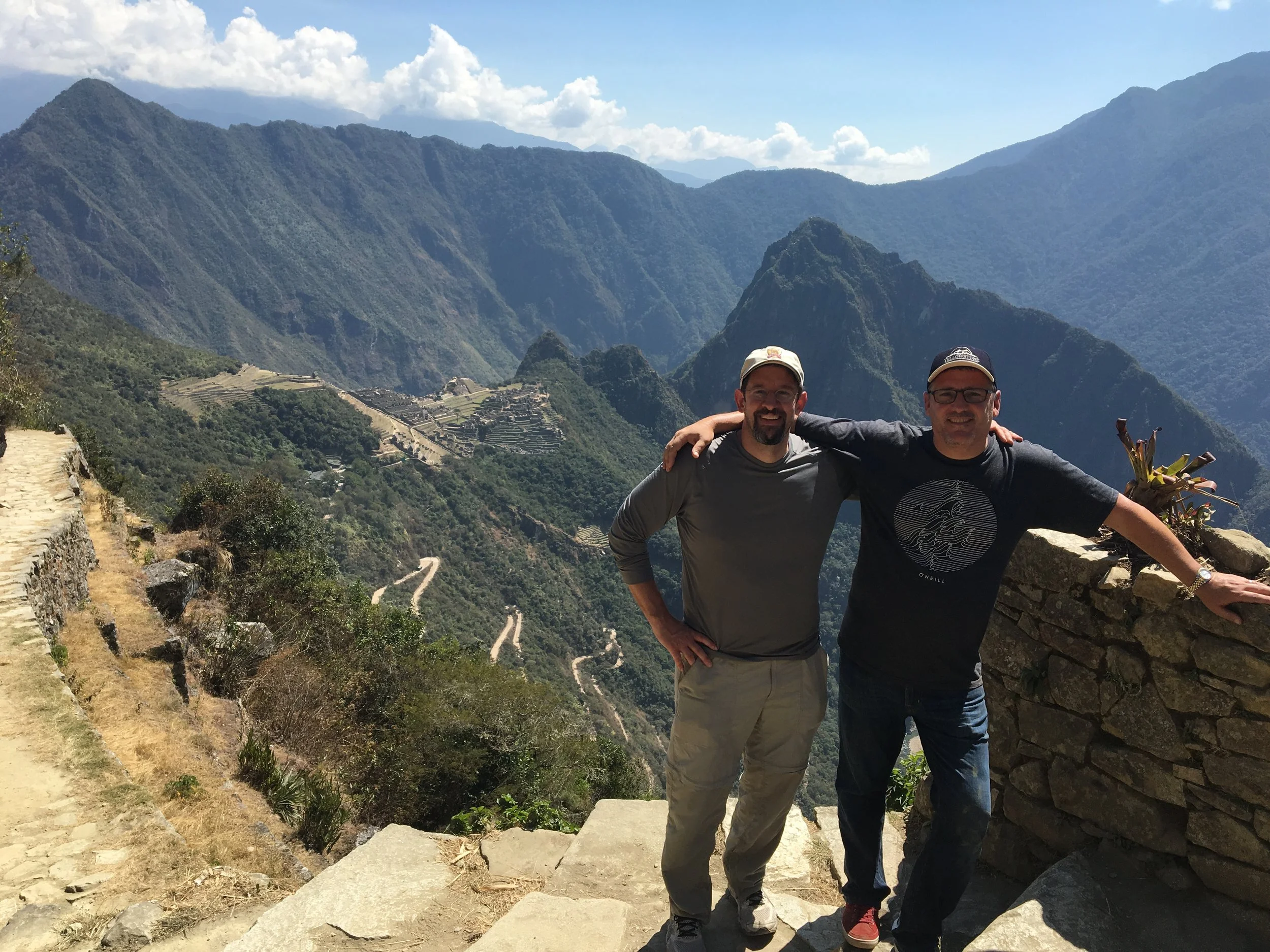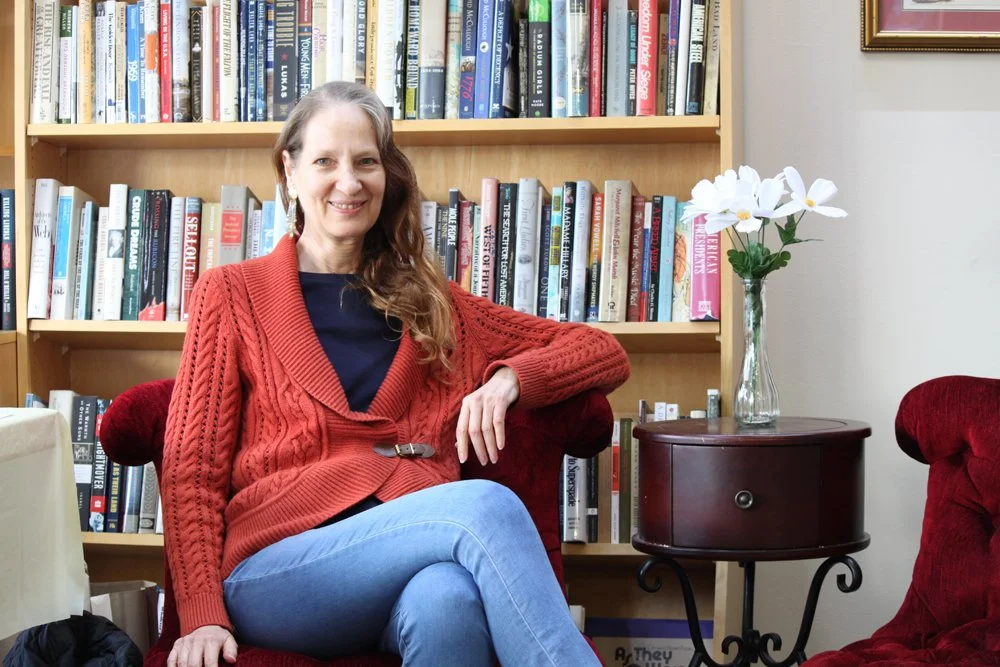20 Authors on their Unpublished or Half-Finished Books
20 Authors on their Unpublished or Half-Finished Books
Readers are often surprised to find out that their favorite authors have unpublished manuscripts. New writers tend to think that their "debut" novel will definitely be the first book they ever try to write. How many unpublished and half-finished books do your favorite authors have? What did they learn from that experience? Why did they scrap them (or table them for now?) Find out the answers to these questions and more, below.
I want to note that I do not get paid to do these posts, I just love authors and the book industry. However, they do take time and energy to create. If you want to donate a few dollars to my coffee fund, which keeps this blog going, you can do so here: https://venmo.com/AshleyHasty or here: http://paypal.me/hastybooklist..
Sarah McCraw Crow
It's a little embarrassing to describe my unpublished manuscripts, but I know I'm not alone--most novelists have at least a couple of novels in the drawer, because that's part of the learning process. My half-finished manuscripts include a middle-grade time-travel story and a YA historical novel; and my finished (but never-to-be-published) manuscripts include a story about two frenemies in a small town, one of whom starts a Christian diet business. The manuscript that landed me an agent was a historical novel about the sister of the artist John Singer Sargent, and it went out on submission, but never sold. So my first (published) novel, The Wrong Kind of Woman, wasn't my first novel, and it's a multi-voiced campus novel set in 1970.
Idelle Kursman
I wrote two unpublished manuscripts. The first was about an unemployed actor who kidnaps an A-list Hollywood star. He feels the star cheated him out of acting roles and a chance for fame.
The second is about a young woman who won't leave her house because she suffered a trauma. She eventually begins working as a preschool teacher and slowly gets her life back.
I did not try to publish them because I was practicing my craft.
Audrey Wick
I started writing creatively in the short story genre and then long-form fiction for a young adult audience. My first three (unpublished) novel-length manuscripts were young adult projects that, ultimately, I was told by agents and editors were "too quiet" for the marketplace at the time. However, I leveraged everything I learned about the craft and pivoted toward women's fiction and romance. That's where I've found publishing success and where I've found a match for my voice and story approach!
Paulette Stout
My first novel was a murder mystery. I wrote it, rewrote it, and tried to learn the conventions of the genre before seeking representation. Ultimately, I put it aside, and with good reason. While the story was totally sound and engaging the writing was only meh. Sorry, just being honest! My second novel, Women's Fiction this time, took 15 years to complete, transforming immeasurably before it was finally published last year. I'm close to sending book three to the editor and couldn't be more excited for readers to get their hands on it this summer. With each book, my skills as a storyteller and a writer get better and better. Looking back, I know my first novel is rightly where it belongs: in a drawer!
Ellen Birkett Morris
I have two unpublished novels. I believe in the work and have set them aside to get fresh perspective. I’ve also worked with a developmental editor to identify areas that need work. Every project is a learning opportunity.
Allison Brennan
I had always wanted to be a writer and started more than a hundred books I never finished. In 2002, I committed myself to finishing a book. I thought finishing the book would the hard part of getting published! My first manuscript was a romantic suspense called HOT LATTE (I'm not joking!) that included every trope of the genre possible in 100,000 words. My heroine broke up with her fiancé because he cheated on her. She had a stalker. Her former fiancé ended up embezzling from their work (she figured it out!) and when she confronted him, he took her brother -- a former Marine turned Catholic priest -- hostage. The hero? Well, he was a cop who has a psycho ex-girlfriend stalker ... to get away from her, he moves across town into the same apartment building as the heroine. Heroine's stalker has mommy issues -- killed her and talked to her corpse. And stalker killed ex-girlfriend in heroine's apartment and framed the hero so he could kidnap said heroine and "marry" her ... yep, everything and the kitchen sink!
Needless to say, this book has never been published -- and never will be. But in writing this book, I learned so much about storytelling. I believe writing is education -- by doing, I learned. When I was done, I had a deeper understanding of character, of story structure, of plotting and pacing. Best, I had actually FINISHED a book for the first time. I then wrote another book -- better, but not *it* -- I rinsed and repeat this process five times. My fifth manuscript had *it* -- whatever *it* means. That book sold, and the rest is history. But I don't regret writing those first four books. Each one I learned more about what it takes to tell a great story, and while each fell short of being good enough for publication, each was better than the previous and I'm proud of the failures as much as the successes.
Evelyn Kohl LaTorre
I have traveled to over 100 countries in the past six decades and can't stop writing about my adventures. I began leaving home to learn about new frontiers at the age of 15 when, on a trip from my home in Southeast Montana to the West Coast, I saw the mountains and ocean for the first time. In 1958, my parents moved their five children permanently from Montana to California. There, a new world opened for me.
In college I lived in Mexico for a summer. After graduation, I entered the Peace Corps and lived in Peru as a community development volunteer. (Read the story in my first memoir, Between Inca Walls.) After marrying a Peruvian and having two sons, I concentrated on my family and career as a bilingual educator and traveled some more, sometimes breaking bones along the way. (Read about this in my second memoir, Love in Any Language).
I am half-way through writing my third memoir about the amazing experiences my family and I have had living and traveling abroad. We've learned history, art, and who we are by exploring new places. When my sons were 14 and 18, I took them to Europe for two months. My newest book will intersperse travels with my sons with chapters of my husband and I later traveling to some of the same places. I will show how the countries changed during the 30 years between our excursions--and how the experiences abroad changed us.
Aimee Liu
I was 25 when my first book was published -- a memoir about anorexia. I'd modeled the book on a novel by Francine Du Plessix Gray that I read as a memoir. I was lucky in my timing, as this was the first anorexia memoir, and I knew very well what I was writing about.
But after it was published I thought I knew how to write a "book" and I wanted to write a novel. But I'd never studied creative writing and didn't know the first thing about plot or how fiction works. I spent a year writing this attempt, during which my agent treated me as a rising young star because of the "promise" shown in my memoir.
At the end of this year I gave my agent the manuscript. I don't think it ever got past his associate, who returned it to me with the advice that I never show it to another soul. Better yet, I should burn it.
I then spent another year working on a nonfiction project that was axed by the publisher --another attempt to write a book that I didn't know how to write.
I was unschooled and unseasoned. I went on to take writing classes and got an MFA and coauthored and ghost wrote 5 books before finally publishing my first novel 15 years after my memoir. I've since written 3 more novels and another memoir and many ghost books.
The lesson of all this came home to me a couple of years ago when my agent asked me to look at a first novel by a client who'd written a very successful nonfiction book. The novel sounded just like my first attempt! The plot was a hodgepodge, an unintentional mashup of genres. The language was flat, the sentences dull, the action and emotions way over the top. Every beat was on the nose.
This look at another writer's failed attempt taught me that novice writing has its own "voice." That voice says to an agent: "Burn me."
But that voice should also speak to the writer. What's it saying? "Keep reading and studying this craft and art. Learn what truly makes a book good before you call yourself an author."
P.S. I didn't burn my first mess. It sits in a drawer to this day, an artifact and reminder of my naive hubris-- and how far I've come.
Willa Goodfellow
Unfinished books - oh my goodness, I have five! They sit in a dropbox file labeled "another book."
Three exist only in the sketchiest of forms. Each came to me in a flash and it took everything in me to put them to one side because I can't manage to write them all at once!
One is an untitled novel, something like Marilynne Robinson's Gilead - the protagonist is a depressed clergyman in a small town in Iowa. The baby Jesus gets stolen every single year from an outdoor creche scene at Christmas. Ironically, that one came to me while staying at a hotel across from the volcano Arenal in Costa Rica. Volcanos have enormous spiritual energy, and living on the Circle of Fire fires my writing energy!
A second is titled The Power of the Powerless, a theological piece inspired by a presidential election. It was one of those "if I don't outline this book right this very minute, it will be stuck in my head all day and I won't get anything else done" moments.
A third is a joint project with my wife who is a spiritual director, The Spirituality of Money. We just haven't gotten to it.
But two are well underway. The Deep is Calling is a collection of essays: a suicidal priest examines suicide from a variety of angles. I put it on the shelf when my brain got stuck trying to describe demon possession in a way that would help readers get past their images of The Exorcist. Is that even possible? Also, talk about a niche market! Are there more than eleven readers for a book like that if I don't go for the evangelical market and say it's a sin? Do I want to handle the blowback if it should happen to gain the attention of anybody on the planet?
The last is a novel, about half finished, The Last Demon. A depressed American woman living in a small Costa Rican beach town isolates herself from other expats and submerges herself into the local community, where los madres are fighting child prostitution. Spray paint is involved. While writing that one, I read Steinbeck's East of Eden for the first time. It occurred to me that I did not yet have the skill to write my own novel.
I could go ahead and write that shitty first draft. Or I could continue to hone my writing skills on less demanding projects. Each one teaches me more. My current project, which I hope to publish in 2024, is Bar Tales of Costa Rica. It has taught me a lot.
Which do people want to read next?
JoAnn Catania
I was a part-time freelance jounalist in my younger years and a full-time mother and housewife. In my spare moments, I wrote short stories and outlined several novels I hoped one day to write. As the oft-used phrase goes, life got in the way--a difficult divorce, and a struggle to keep my financial head above water, even as I attempted to generate the funds to provide my three children with a university education, one of them through four more years of medical school.
Three years ago, I was cleaning out my basement and came across a bin of short stories and a couple of unfinished novels I had written decades ago. I reread everything, and decided one of my novels wasn't half bad. I spent another year editing and re-writing it, found a hybrid publisher whose editor was enthusiastic and supportive of my novel, A Scarcity of Virgins, and now it's out there, available as an e-book and a print on demand, and even as an audiobook. I have learned so much from my publishing experience, and I have just completed the first draft of my second novel.
I don't know if it's too late for me to be doing what I'm doing with any hope of success, (I just entered my seventies!) but I have to say, I'm enjoying the ride.
Sally Whitney
My first novel, DILLON IN THE DISTANCE, took me five years to write and has yet to see the light of day--at least not in a published version. I queried many agents about it and received several requests for the manuscript, but no agent wanted to take it on. Several of them, however, were kind enough to give me feedback, which taught me a lot about what’s marketable in today’s book world. Pacing and action were two things I heard about a lot.
I was in the midst of revising DILLON when another idea started flitting around in my brain. I was so excited about that idea that I started writing a new story, which became my first published novel, Surface and Shadow. I still think DILLON has some good ideas, and when I finish the manuscript I’m working on now, I may go back and revise it for resubmission, but this time it will likely be to small publishers, rather than agents.
Amy Q. Barker
Maplewood was the first book I wrote. Back in 2016, I had no idea what I was doing but felt an absolute compulsion (almost a fevered yearning obsession) to get the words out as fast as I could. I finished the 130,000-word monstrosity in two months and cried like a baby when I typed “The End.” I had achieved my lifelong dream of writing a book. I had fallen in love with my characters and my story and wanted more than anything to share them with the world. Little did I know that it would be five years (and hundreds of rejection letters and rewrites) later before I would become a published author, and in fact, three other books came out first (Rue, Punk, and Bibliointuitive).
I know this will sound crazy, but looking back now, I’m grateful for those rejection letters. Writing is like a muscle that needs to be exercised and stretched and perfected in order to become strong. In the beginning, my writing was mechanical and mystical but lacked finesse. I have since learned (through the course of daily writing, struggling, and growing) how to make a story come together and click. And I’m still learning.
The other reason I took so long to publish Maplewood is because it made me sad. In 2016, when I started writing, I didn’t tell anyone except my husband (who wondered why I was getting up at four o’clock in the morning—before heading to my day job—to pound away on my computer like a deranged gerbil). I kept it quiet because I was afraid that people would judge me—who is she to think she can be an author? I struggled with my self-confidence. But in March of 2017, my best friend, Bobbi, came into town for a work conference, and we met for dinner. With my hands shaking, I handed her an envelope with a thumb drive and a set of instructions, telling her I had written a novel and wanted her to read it but not to share it or tell anyone. As I held my breath and wondered if someone’s heart could actually fall out of their chest from pounding so hard, she took the envelope and said, “Amy, that’s really cool. You wrote a book? Wow, I didn’t even know you liked to write.” She was so gracious, and when she returned home and read it, I was even more grateful because she didn’t pan it (even though she probably should have—that first version was really rough!). She could have said, “Amy, this is a great little hobby, but really, you probably need to quit because to be honest, your writing is awful.” If she had said that, I would have walked away and never written another word (and probably cried myself to sleep for a year). But instead, she said, “I had trouble separating the ‘real Amy’ from the words in the book, and maybe you could shorten some of the descriptions, but otherwise it’s a good story, and you should keep going.” The blue sky opened up and my heart soared right up into the heavens!
Now, here’s the sad part: a couple of years later, Bobbi got an aggressive form of colon cancer and passed away at the age of forty-nine. It was awful. It’s still awful. She was an amazing best friend and an amazing human. She was also the first person who read my writing and told me to keep going. Much like Michelle and Kelly in Maplewood, she grew up in a house full of girls kitty-corner across the street from me on Maplewood Avenue. And because this story is a tribute to her and to our happy childhood growing up on Maplewood, it makes me sad that she isn’t here to finally see it come to fruition.
I dedicated Rue to her, even though she never read it, because back when I gave her Maplewood, she was the one person who could have crushed my soul but didn’t. Instead, she selflessly handed me the moon with her encouragement, and I will be forever grateful. So, even though I’m sad about her not being here to see my dream come true, I know she’s looking down on me with a thumbs-up and a “You go, girl!”
I have three other manuscripts in the hopper that are waiting to tell me their own right timing, and I will trust that instinct and be patient. I will also look up to the heavens and think, Bobbi, I did alright, eh? Patience really is a virtue. And thank you, my friend, for believing in me and for teaching me that friendship goes beyond the grave, and that life isn't always a straight path, and I'm all the better for knowing it now.
Teri M. Brown
Sunflowers Beneath the Snow is not the first novel I wrote. In fact, I wrote three complete and one partial novel before I had the courage to tackle this multigenerational family saga set in Ukraine.
Writing is like any other ability or craft. Most people aren’t born with an innate talent that takes them from zero to the world’s greatest novel in an afternoon. Even those who seem to be born with the ability to write learn things and become better as they go along.
For me, those first novels and novel starts taught me how to make my characters three-dimensional. My first main character was perfect – completely flawless. She moved from one life event to the next with ease and grace. And, quite frankly, she was boring! I also learned more about trusting my reader. Now, instead of saying that my main character is sad or angry or frustrated, I show it through actions, facial expressions, and internal dialogue. I may eventually go back to these stories, but not without a lot of editing.
Susy Smith
My unfinished work, tentatively called Leverage builds off my debut novel, Asylum. Although Asylum can be read as a stand-alone dystopian romance/suspense, the sequel takes off like a rocket from its first page beginning right where Asylum ends!
Asylum’s conception didn’t include a sequel, so after its publication, I was on the fence about continuing the story of Lacy and Jace. But as people began to read it and give feedback, their first question was always, “When is the sequel coming out?” or “I can’t wait for the sequel.” And so, I began plotting … (Mwahahaha!)
I won’t go into great detail but here’s Asylum in a nutshell: In a future where the U.S. is controlled by a military-style government, young Lacy Monroe struggles against evil men and forces of nature to keep her family’s Oklahoma farm intact. In the process she provides asylum for a diverse crew of displaced souls who might or might not be trustworthy and falls in love with the brother of her worst enemy.
Last year at WriterCon in Oklahoma City, I attended a seminar on plotting, and it really helped solidify the sequel’s concept. The class was asked to answer these short questions and I thought I’d share them.
The first question was “Who is your Main Character?” Because it’s a sequel, I knew that already. Lacy is the main female protagonist and Jace is the male protagonist. They are a young pair who find themselves on the run from Lacy’s uncle who wants to use them for his political gain.
Second, “What is their situation?” At the end of Asylum, Lacy and Jace are at the Texas/Mexico border. They’ve just decided to make a break for it when her uncle shows up and stops them. In a heart-wrenching scene, they’re separated.
The third question was “What do the main characters want?” Lacy wants to get back to Jace, the love of her life, and find a way to be free from her uncle’s tyranny. She needs to find enough leverage against her uncle to outweigh what he’s using as leverage against them. In the sage words of Johnny Depp’s character, Captain Sparrow, “Why fight when you can negotiate? All one needs is the proper leverage.”
The fourth question, “What obstacles do they face?” is probably one of the most important components of a novel. How excruciatingly painful can I, the omniscient author, make the situation for Lacy and Jace? Once I had that in mind, a second question followed. How can I make it worse? Lacy ends up kidnapped by a powerful Mexican human trafficker with no way out. Jace has been captured by Lacy’s uncle and is forced to carry out certain black op missions for him.
Fifth, “What must the main characters risk?” Lacy must risk her life to escape and find leverage against her uncle in order to save Jace and finally find freedom.
Of course, there are subplots beneath the surface! Currently, I’m finding my way through the middle which, as every writer knows, can often become a little murky! I hope to complete this work by mid-summer. #targetdate #goalsetting #writer4life #dystopianromance #dystopiansuspense.
Kelly I. Hitchcock
The first serious book I ever started writing was a mystery novel about a mission trip taken between an epidemiologist and her best friend to Vanuatu. It's lived rent-free in my brain for twenty years since, both because I can't picture myself writing a novel with a Christian bent these days, and because the plot in my head seems so ridiculous it just might be a bit brilliant to actually finish it and pull it off well. Then again, I really only got the idea for it because I took a Geography class and we spent a lot of time on Vanuatu, and my senior creative writing project advisor said it wasn't a good enough idea. I have a lot of other starts - one to two chapters - sitting in a folder on my server, but the Vanuatu one with the other half of the mission trip conspiring to murder everyone on the trip and steal money from the church is my most memorable one!
Brian Lebeau
From 2005 to 2010, I had the good fortune of taking employees on adventures all over the world. Twice a year, the HR team issued requests for proposals across the company to which employees could respond for an opportunity to visit exotic locations with the CEO. This led to trips across six continents with myself and as many as five employees. From African safaris to World War II tours, the natural beauty of the Great Barrier Reef to the man-made wonder of Machu Picchu, and dream destinations that included Amazonia and Durnstein Castle, employees were taken on adventures they may not have otherwise experienced, opening their eyes, as these trips did mine, to a more navigable and diverse world. From my travels during this period, I drafted nine novellas assembled into three novels that comprise the "Andre and Ballast" series. Upon retirement from the CEO position, I considered these drafts as my first publishable works, ultimately deciding to go with "A Disturbing Nature," a story of greater depth that had been with me for nearly thirty years. The "Andre and Ballast" adventure novels lie in wait on a shelf at the Tangent Inspired Stories offices for their turn. Brian Lebeau
Priscilla Oliveras
Unpublished or half-finished manuscripts
I’ve actually finished each manuscript I’ve started, but don’t let that fool you…not all of them have been published. I’m a character-driven writer (and reader), so by the time I finally start getting words on the page, I’ve done quite a bit of pre-writing work getting to know my characters, as well as plotting out major scenes. Once I’ve started writing, the characters start to take on a life of their own, becoming more like real people—real friends. Then, as I get deeper into the book, I begin to feel this sense of responsibility for these “people” I’ve created and have truly come to care about. I want to tell their story well…give them my absolute best so that readers will come to love them as much as I do. That sense of responsibility drives me to “The End.” Sure, having a publisher deadline is also a BIG finish-the-book motivator—LOL—but even before I had publisher deadlines, I felt compelled see the story and my characters through to their HEA (happily ever after). Those books that didn’t sell, they did serve a purpose though. They helped me grow and learn as a writer, and those characters are equally as dear to me.
Linda Dahl
Unfinished books? You bet. All my books, the nine that are published and the four orphans in a drawer, could probably be better. But there comes a time for every writer when a work is cooked. My orphan novels each taught me a lot. Sometimes in the mysterious alchemy of creating a novel, ideas are stillborn or unwieldy or don’t have staying power. In one case, historical fiction turned out not to be my metier. These books are an itch that I don’t want to scratch!
For the unfinished novel I’m working on, I like the phrase “work in progress” better than “unfinished book”. It sounds more optimistic and this writer when mid-project needs a lot of positive input. Mid-book writing can be what a writer friend of mine calls “like breaking rocks.” Or, when your inner Siri garbles the directions and you feel like you’re lost in the woods. To continue mixing metaphors, there’s the feeling – exhilarating but scary – of being like a trapeze artist working without a net.
But if a writer falls or loses their way mid-book, there’s only him or her to see it, and maybe a (hopefully) sensitive friend or editor. You don’t have to worry about the reviews (or lack of them). All you need to do is keep on writing. In this messy process, I love the unexpected connections that are being made, the characters who are becoming like friends or crazy relatives, the themes that start to resolve, usually in ways I hadn’t anticipated. Because if an unfinished book was all work and no play, I would have quit long ago.
Rachel Abugov
I have two completed novels and a bunch of beginnings that faded out in the writing process sitting in what I call the Boulevard of Broken Dreams. *cue sad Green Day song*
I write very character-driven stories and sometimes I have to come up with a plot after the fact. That's how my Brooklyn hipsters, Sam and Scarlett originally time-travelled back 140 years or so.. They ended up being a lot happier in modern times, where there's Costco and Uber Eats. It also took three tries for me to successfully come up with a suitable heroine for my cinnamon-roll hero, Maurice "Murderface" Mayfield. Now Maddie and Mo have the HEA that they deserve.
I may exhume my not-ready-for-prime-time novels at one point and try to rework them. I may also take up Krav Maga. Don't bet on either happening. The truth is that I've gotten better as a writer, and I can recycle characters in shiny new sets of circumstances. My favourite review was from a reader who said that my characters were people she wanted to spend time with. A clumsy plot only gets in the way of this level of enjoyment, and I will do my best to ensure that people have the reading experience they crave.
Nanette Littlestone
I remember thinking that my first novel was "perfect" just the way I wrote it. I didn't care what anyone else said. I also thought that about my second, third, fourth, fifth, and sixth. It wasn't until I joined a critique group (after the sixth one) that I discovered I had a lot - A LOT - to learn about writing.
I have 22 partly-written novels in my "writing" folder on my computer. A few of those are finished in the "first draft" sense. Most of them have a chapter or two. Ideas are easy to come by. The difficult part is figuring out what to do with that idea, giving it wings and seeing if it will fly or if it crashes. Most of the 22 crashed and burned, but there's at least one that I want to work on. If only I can fit it in somehow between all the other writing and editing.



